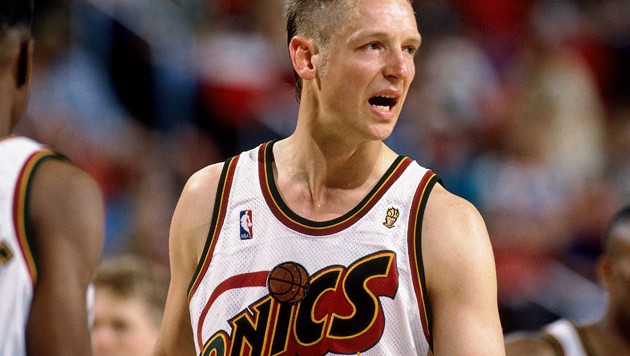As we continue our examination of players who should be in the Naismith Basketball Hall of Fame (but aren’t), a clear example comes from the Western Conference of the NBA and the Western United States… on both sides of the divide.
Why that last aside, you might ask?
Earlier this week, a look at Paul Westphal’s Hall of Fame case put forth the question: If Westphal had played for the New York Knicks and not the Phoenix Suns (keeping in mind that Phoenix was a much smaller market in the late 1970s compared to today), would he be outside the Hall’s doors right now? The question’s validity remains, but there was an open-ended component within it, one we’ll try to close in this piece today.
That question in the Westphal piece suggested (or at the very least, allowed for the possible interpretation) that Hall of Fame decisions might come from a bias toward Eastern media and basketball centers. Western locations might not get the same treatment (or respect).
That’s not quite precise.
The better and more exact way to frame the above issue with Westphal is that he came from a sleepy or undersized market; it’s not really a matter of East versus West in the United States or the NBA.
This next Hall of Fame comparison will underscore that clarifying point.
*
Jamaal Wilkes would not be described as a dazzling, imposing or overwhelmingly great player. Wilkes was a supremely effective and highly competent player, much more than the vast majority of his peers. When one realizes that the Basketball Hall of Fame has inducted other players primarily for what they did in college (we’re going to focus more on that quite soon here at Crossover Chronicles), Wilkes’s splendid career at UCLA makes him a clear Hall of Famer. I personally have no real problem with Wilkes being inside the Hall’s gates. His mastery of a collection of basketball skills (or to be clever about it, “a basket of ball skills”) for more than a solid decade at both the collegiate and professional levels earns him, in my mind, the Hall pass he’s received.
There’s just one thing about Wilkes which has to be pointed out, however: He played for the great Los Angeles Laker teams of the early 1980s, alongside Kareem Abdul-Jabbar and Magic Johnson.
Yes, if you consider Wilkes’ stats within the context of the fact that he was sharing the floor (and the ball, and the workload) with a couple of superstars, his numbers demonstrate more excellence than they might immediately reflect. Wilkes’s core role as a shaper of championship teams rightly gave him Hall of Fame recognition on the raw merits. Yet, let’s not pretend he didn’t have the boost of the major-market power afforded by Los Angeles. Being in one of the three cities which was the focus of the NBA’s attention in the early 1980s clearly helped Wilkes attain the honors his career deserved.
Wilkes’s presence in the Hall strongly affirms the clarification made above: Recognition is not so much about East-versus-West, but about the difference between a publicity-magnet city and a less-scrutinized NBA market.
Wilkes had Los Angeles. Meanwhile, in both Seattle and Indianapolis, another career blossomed — one quite comparable to the one Wilkes forged. Yet, this career has not yet been deemed worthy of the Hall of Fame.
The player? Detlef Schrempf.
Look at the stats. It’s true that Wilkes’s best years were better than Schrempf’s best, but not by a particularly wide margin. Schrempf started more slowly than Wilkes did, but he sustained his career for a long time, attaining slightly more longevity when all was said and done. Schrempf didn’t play for a national champion the way Wilkes did in college, but he did lift the University of Washington to a higher place in college basketball, under Hall of Fame head coach Marv Harshman.
Moreover — and this is where the Schrempf-Wilkes comparison is especially relevant — Schrempf shared the floor with Gary Payton and Shawn Kemp, also enduring what Wilkes did in L.A. with Kareem and Magic. Sure, Kareem and Magic were two of the 10 to 15 best players of all time, but Schrempf was still constrained in his ability to accumulate raw numbers. Again, the complaint here is not about Wilkes being in; it’s why Schrempf would be left out.
When one allows these comparisons and their granular details to settle in the mind for a little bit, it becomes harder — not easier — to understand why a merit-based comparison would leave one of these two players outside the Hall.
Market heft and media visibility seem very hard to ignore as the real reasons for Detlef Schrempf’s exclusion from the Basketball Hall of Fame. One does hope this imbalance will be dealt with before too long.

